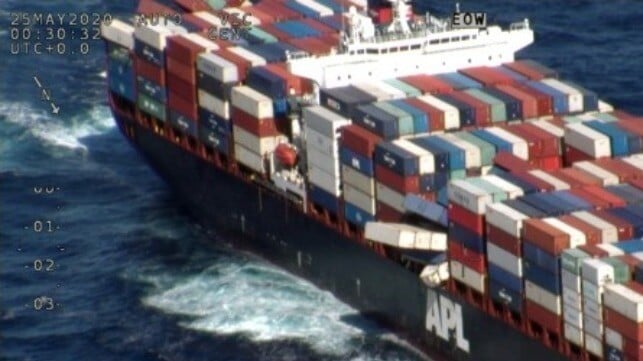TT Club: More Can Be Done to Prevent Container Losses at Sea

Cargo insurer TT Club says that while heavy weather is still the biggest reasons why container ships occasionally lose stacks of boxes over the side, more needs to be done at the shipper's end to ensure that containers are properly stuffed and weighed so that they are safe to load.
Ships will never be able to avoid the impact of heavy seas entirely, says TT’s Peregrine Storrs-Fox, so the industry has to do as much as it can to offset the predictable effects of high waves and wind. Even something as simple as sticking to the stowage plan is not guaranteed. A proper stowage plan puts heavy boxes at the bottom of the stack and light ones at the top - but in practice, this only works if the stowage plan is followed.
"TopTier studies have identified discrepancies up to 20% between planned stow versus the actual final stow on board. If representative of all operations, this is itself alarming," sais Storrs-Fox.
Once the vessel is under way, it's up to the crew and the operator to manage the risks of severe rolling. Navigating around heavy weather is the ideal option, but on some routes this is not possible. With the Red Sea affected by serious security problems, most east-west container ship services are going around the Cape of Good Hope, an area where the seas are often much rougher than the flat-calm conditions of the Middle East. Just last week, the CMA CGM Belem lost 99 containers over the side in a storm off South Africa, according to the nation's maritime authorities.
TT's studies have found that parametric rolling and synchronous rolling are risk factors for stacks to topple and boxes to fall over the side. These conditions are linked to wave length and wave period, even more than wave height, according to TT. Analyzing specific wave conditions and responding to wave patterns could help reduce the risk, and more data collection could be a great place to start, the insurer says.
